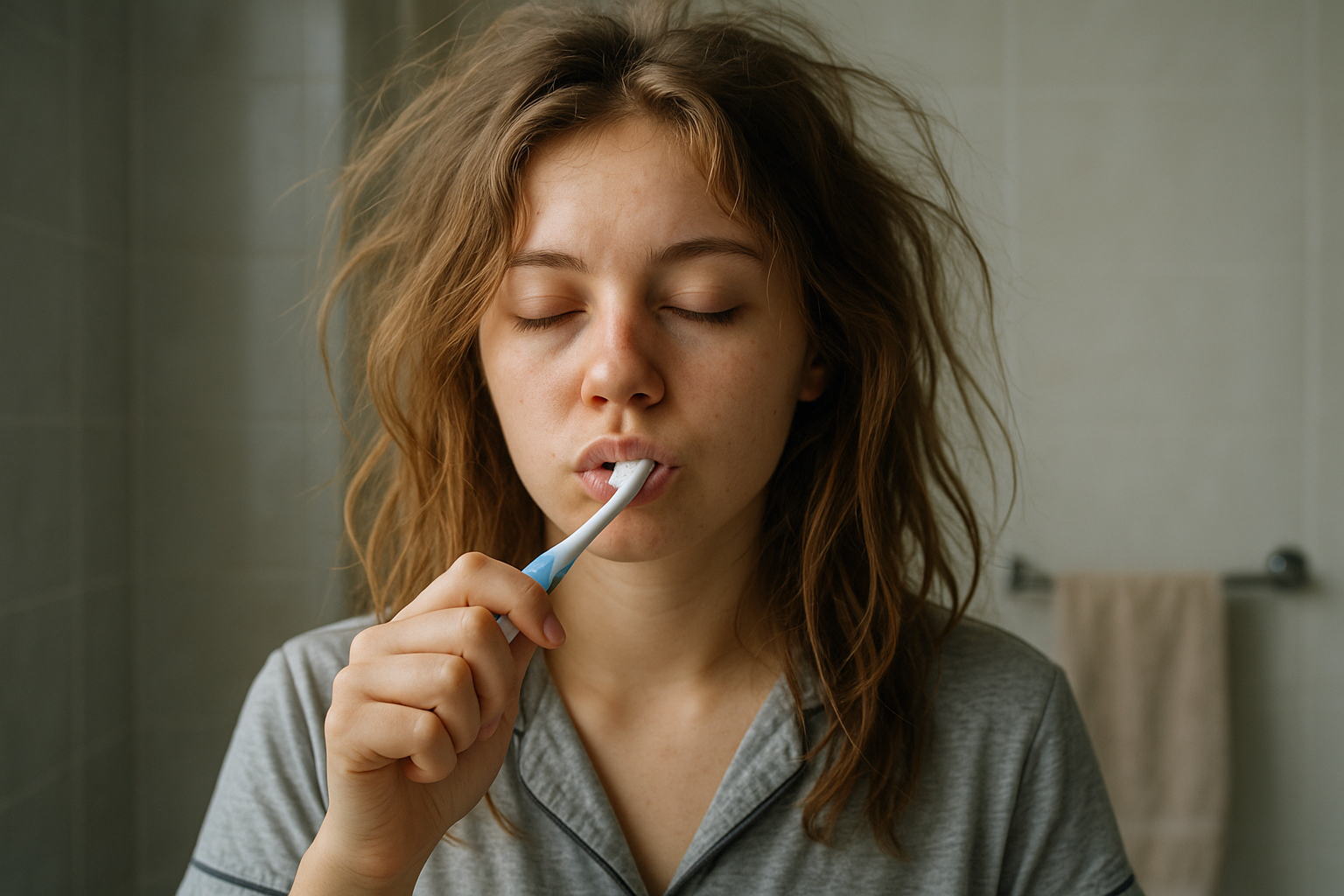Welcome to a teen’s guide to how our sleep really changes when we hit secondary school...
1. What the “grown-ups” say we need vs. what we actually get
When we were in primary school, teachers and parents droned on about “10–11 hours” a night. But they weren’t making that up:
Children aged 6-13: 9–13 hours recommended — that’s the official NHS line
Teenagers (14-17): 8–10 hours is plenty, say both the NHS and UK sleep charities
So the target drops by roughly an hour or two the moment we cross into Year 9. Sounds easier, right? Spoiler: it isn’t.
2. The reality check: what UK data shows
In the huge HBSC England 2024 survey, barely 42 % of 11-year-olds got 8½ h on school nights. By 15 years, it crashed to under 25 %
Millennium Cohort Study diaries found only 6–8 % of 14-year-olds hit the lower end of the “ideal” on weekdays; phones and gaming soaked up a third of weekend waking time
A 2025 English study on social jet-lag (the gap between weekday and weekend wake-ups) shows it widens with age, especially after GCSEs
Translation: the older we get, the less we sleep - even though the advice only dropped our recommended amount of sleep by an hour.
3. Why the pattern flips in secondary school
| Age | Bedtime Vibes | Body-clock Shift | Typical Wake Up Time | What does it feel like? |
| 9-11 | Lights-out ~8:30 pm | Melatonin peaks ~9 pm | ~7 am | Easy - matches school! |
| 12-14 | “Just one more episode” | Peak drifts to 10 pm | Still ~7 am | First taste of sleep debt |
| 15-18 | “Wide awake at midnight” | Peak drifts past 11 pm | Alarm 6:30 am | Chronic deficit, weekend lie-ins (social jet-lag) |
The science bit: puberty delays the nightly melatonin surge, so our brains don’t even want to sleep until later. Yet school buses still leave at 8 a.m. Helpful combo, huh?
4. The knock-on effects (straight from UK research)
Focus & grades – Teens sleeping <7 h scored lower on cognitive tests in UK classrooms
Mood – 55 % of English pupils said they struggle to nod off at least once a week; that overlaps with spikes in anxiety
Health – Short sleepers in the Millennium study were less active and more screen-tied, a pairing linked to higher BMI and blood-pressure risk later
5. What actually helps (from someone living it)
Shift the wake-up, not just bedtime
Dragging Saturday lie-ins past noon just turbo-charges social jet-lag (PMC). I keep weekend alarms to +1 h max—painful, but Mondays hurt less.
Screen-curfew hacks
I set my phone to grey-scale at 10 p.m. (it looks so boring I give up scrolling). The NHS says half-an-hour of tech-free wind-down beats any sleeping tablet for our age (nhs.uk).
Daylight & movement
A 15-minute walk to school sounds tiny, yet UK data links every extra 10 min of exercise to more sleep that night (PubMed).
Bargain with parents on homework blocks
I showed mine the HBSC stats; we agreed a “no-work-after-9-thirty” rule before exams. Grades didn’t tank—my brain actually functioned.
6. Big-picture fixes we’re still waiting for
Later school starts – Welsh pilot schools shifting to 9:30 a.m. reported attendance boosts (fingers crossed England copies soon).
National sleep education – Paediatric bodies want lessons on sleep hygiene baked into PSHE (BMJ Paediatrics Open).
Until that happens, it’s on us - and the adults who’ll listen - to protect those precious eight-ish hours. Because yes, we’re teens, but we still need our sleep.
Now excuse me while I set my grey-scale and hit the hay before my brain starts plotting another midnight snack run. 😒







Share:
The 'Five Senses Breath' Technique
The 90-Minute Recharge Reminder: Decompress, Reset, and Feel Human Again